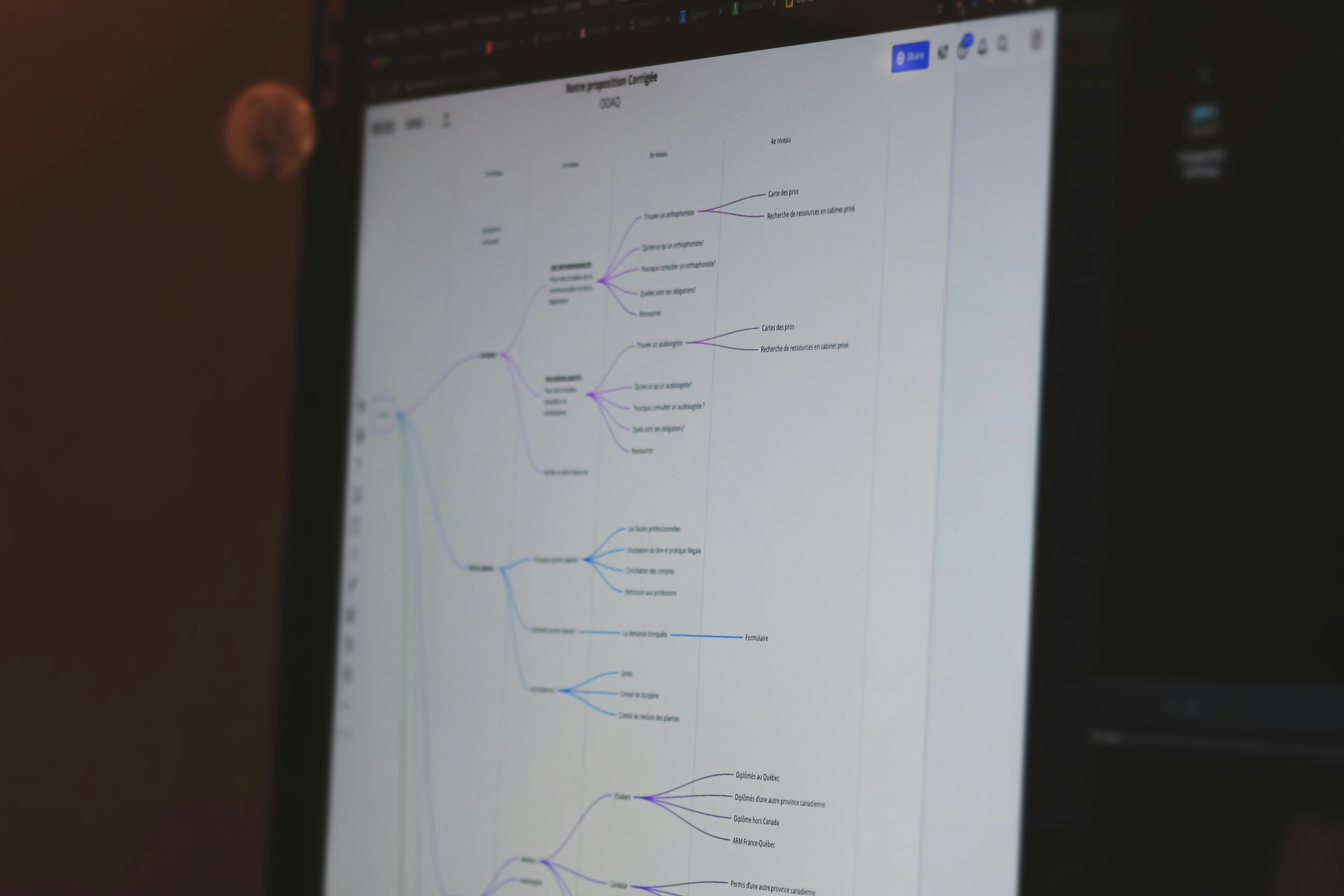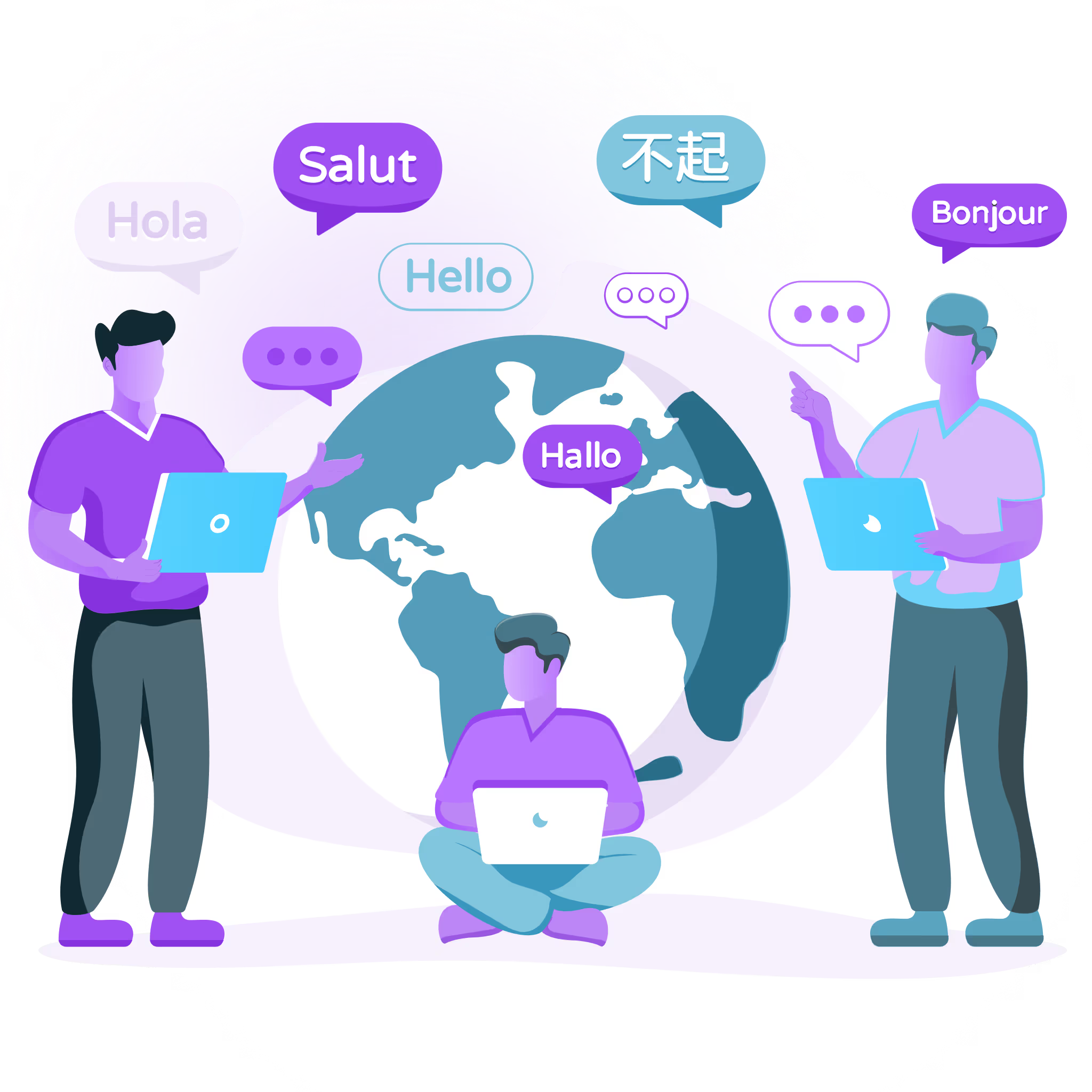Did you know that 76% of consumers prefer to purchase from sites and apps written in their own language? If your mobile app isn’t localized yet, you could be leaving a significant portion of potential revenue on the table.
So, are you planning to translate and localize your mobile app? If not, we’ve got a few reasons that might change your mind. We’ll walk through what app localization is, why it matters, and how to do it well.
The Benefits of Mobile App Localization
App localization is the process of customizing a mobile app for users in a different culture, language, or region. Customizing your app for various locales broadens your app’s reach in the global market and draws in more revenue.

Translation is a big part of app localization, but it's not the only factor. Localization includes a full evaluation of app functionality to ensure a good fit for each locale. For example, the checkout and payment options you offer in America might not work for users in Japan.

Although it takes time and effort, localization pays off in downloads, new users, and revenue:
- Capitalizing on industry growth:
Anticipated to reach 189 billion app installs and generate $186 billion in revenue by 2027, the global mobile app industry is poised for remarkable growth. This presents an exciting opportunity for app developers to expand their reach and increase their revenue. Over the next few years, researchers anticipate a shakeup in market size, with growth in Brazil, India, Indonesia, and Pakistan. - Boosting downloads and revenue:
According to a study by Distomo, app store downloads for localized apps were 128% higher than non-localized apps. Plus, localized apps produced 26% in additional revenue for each region. - Fewer abandoned carts and better engagement:
52% of consumers say they’ve stopped using an app due to poor localization, specifically due to incorrect wording, misspellings, and unhelpful local references. This underscores the importance of cultural adaptation in app localization. By understanding and respecting the cultural nuances of your users, you cannot only avoid these pitfalls but also boost your sales and engagement. - Better marketing campaigns:
Savvy localization can help you avoid embarrassing branding mistakes. A one-size-fits-all marketing approach isn’t always a good fit for different countries. Phrases and words in one language can mean something else in another. This also applies to brand names. For example, the carmaker Fiat chose Uno as a brand name since it meant number one in Spanish. But they didn’t consider that Uno means idiot in Finnish. - Scalability:
Localization should be carried out alongside the development of your website and your app, not after. Developing your app all over again because you just thought of your Japanese, French, or German customers will be tedious, time-consuming, and expensive. Setting aside a small portion of your app development costs for mobile localization will turn out to be profitable in the long run. Effective localization helps you scale and easily add more languages in the future.
How Developers Translate Mobile Apps with Localize
Nobody understands mobile app localization like the developers who do it. That’s why we’ve interviewed the engineering team at Carry1st to learn how they’re making games more accessible and growing their business with localization.
Based in South Africa, Carry1st publishes hit mobile games and powers in-app payments across the continent. The African app market is massive, with millions of new gamers yearly. But so is the challenge: Africa is multilingual, and English isn’t even a second language in many regions.
At first, Carry1st struggled to connect with non-English-speaking users. In Egypt, for example, engagement was nonexistent. They knew they needed to localize. But juggling translations across apps, APIs, and websites felt overwhelming.
That’s when they found Localize.
Instead of building a system from scratch, Carry1st integrated Localize to manage translations at scale. Localize’s centralized platform helped their team move fast, stay organized, and focus on what they do best: building and shipping new apps and features.

The impact was immediate. Users all over the continent started leaving reviews in Arabic and French. Support tickets came in local languages. And the quality of the translations? “No complaints,” said engineer Arnoe de Vries. “It feels natural to users, which is the whole point.”
Localize integrated with their tech stack, and the API docs made onboarding easy. The dashboard gave them full visibility into every phrase—what was pending, what was approved, what needed a second look. And thanks to the audit trail, they could always track changes and revert when needed.
For product lead George Ng’ethe, consistency was key. “Glossaries helped us keep terms uniform across platforms. That might sound small, but it makes a huge difference in user experience.”
Carry1st offers this advice to other mobile teams: “Localization brings your product closer to your users,” George said, “Just do it. It’s a no-brainer.”
Tips for Mobile App Localization
Are you ready to seize the potential of mobile app localization? Here are 10 best practices to help you get started.
1. Focus on the Most Profitable Regions and Languages
Before localizing your app for dozens of markets, prioritize the regions with the highest potential for growth and revenue. To begin, identify where your app is already gaining traction or where there’s a clear opportunity.
Look beyond basic demographics. Study each region’s cultural norms, language preferences, payment methods, and tech habits. Is mobile usage high? Do users prefer Android or iOS? What’s the dominant language, and how fluent are users in English?
For example, Carry1st, a mobile game developer focused on African markets, expanded into Egypt and quickly realized that English wasn’t common there. They localized key mobile apps into Arabic to appeal to local users, leading to better engagement and more downloads.
2. Find a Certified Translator
Artificial intelligence (AI) tools like Google Translate are helpful, but they're no substitute for professional translation. A skilled human translator from a translation agency or LSP can make your app’s text sound more natural to native speakers in your target market.
Even a single language like French has different regional variations. Poor word choice or bad grammar might cause local readers to question the integrity of your mobile app. A professional translator can help you avoid common mistakes and help your app maintain credibility.
3. Test the Mobile App with Users in their Native Language
Thorough beta testing can help uncover problems and correct bugs before app launch. You should include localization testing in your beta programs.
Localization testing verifies that your app's functionality and UI work smoothly in different languages. During your tests, you should find testers for each region where you plan to release the app. They can review your translated user interface to make sure it looks and feels natural for their language and culture.
4. Watch Out for Cultural Differences
Successful localization goes beyond language to align your app with local customs, values, and expectations. Something as minor as an emoji can shift your message from friendly to offensive in the wrong context. For instance, the “OK” emoji (👌) might feel harmless in the U.S., but it’s considered rude in Brazil.
Cultural sensitivity also applies to tone, humor, colors, and informal language. Slang that feels playful in one market could be confusing or inappropriate in another. That’s why localization should include a full content review—not just for written copy, but for images, UI symbols, video, and music.
Working with trusted, in-market translators or localization experts helps you catch these details before they become problems. The result is an app experience that feels intuitive and respectful, no matter where your users are.
5. Write for Global Users
Even if your app launches in U.S. English, write with a global audience in mind. This makes future localization faster, smoother, and more cost-effective.
Take Uber: its apps are translated into 50+ languages. To streamline the localization process, Uber’s designers stick to simple, clear language that’s easy to translate. They also design user interfaces with flexibility in mind, since translated text can expand by up to 40%, especially in languages like German or French.
Uber’s global writing guidelines offer a great reference.
6. Optimize App Store Listings
Translating your app store listings helps you get discovered by the right users. It improves your visibility in local search results, boosts keyword rankings, and increases the chances of converting views into downloads
Localized listings align with how users search, read, and decide in their native language. Both Google and Apple let you customize each region's assets like screenshots and promo text. Done well, this simple step can significantly improve your global reach.
7. Pay Close Attention to Local Payment Preferences
Payment friction is one of the fastest ways to lose a customer. 41% of global consumers have hit a payment roadblock that prevented them from completing a purchase. For U.S. retailers alone, cart abandonment leads to an estimated $136 billion in lost revenue annually.
To avoid this, research the most popular payment methods in each target market and make sure your app supports them. Testing localized payment flows and ensuring smooth performance across different regions can help close the gap between user expectations and app experience.
8. Localize Your Pricing Strategy
When it comes to prices, most companies make the critical mistake of copying and pasting their prices across international markets. But the dollar doesn’t have the same purchasing power around the world. Getting pricing right is crucial so you can grow in new markets.
“Would you pay $55 for a latte at Starbucks? Or, put another way, would you pay 187% of the average hourly wage for a latte? That's what it could cost in India if Starbucks didn't use price localization.” - Kevin O’Donnell, On Price Localization
9. Enhance Customer Service
Localization should also extend to your support experience. Offer chatbots, help docs, and customer service in users’ native languages. And make sure your CX team understands local expectations and cultural norms.
A study in The Journal of Business Research found that localized chatbots increased purchase likelihood by 87% for an Indian mobile e-commerce app. Supporting a local language builds trust, pride, and a stronger connection to your app.
10. Track Metrics That Matter
Localization is never truly done. After launching a new language, track performance by region to know what’s working. Monitor key metrics like app downloads, user retention, reviews, in-app purchases, and subscription behavior. If users in Germany subscribe more, or retention in Brazil is low, those signals can guide where to adjust.
Use tools like App Store Connect, Google Play Console, or third-party platforms like App Annie, Adjust, or Apptweak to segment data by language or location. Tracking these trends helps you catch localization issues early, optimize for ROI, and continuously improve the user experience across markets.
Conclusion: Modernize Your App With Localize
Grow your app faster with seamless mobile localization software.
Localize takes the hassle out of translating mobile apps. No more juggling strings or spreadsheets—our automated workflows and integrations with major platforms make it easy to go global.
"Some mobile app localization tools are overly complex for no good reason—Localize isn’t one of them. It solves the problem and hits the target."
-George N, Developer at Carry1st
Ready to grow? Talk to us about expanding apps into new markets with less friction and more impact.











